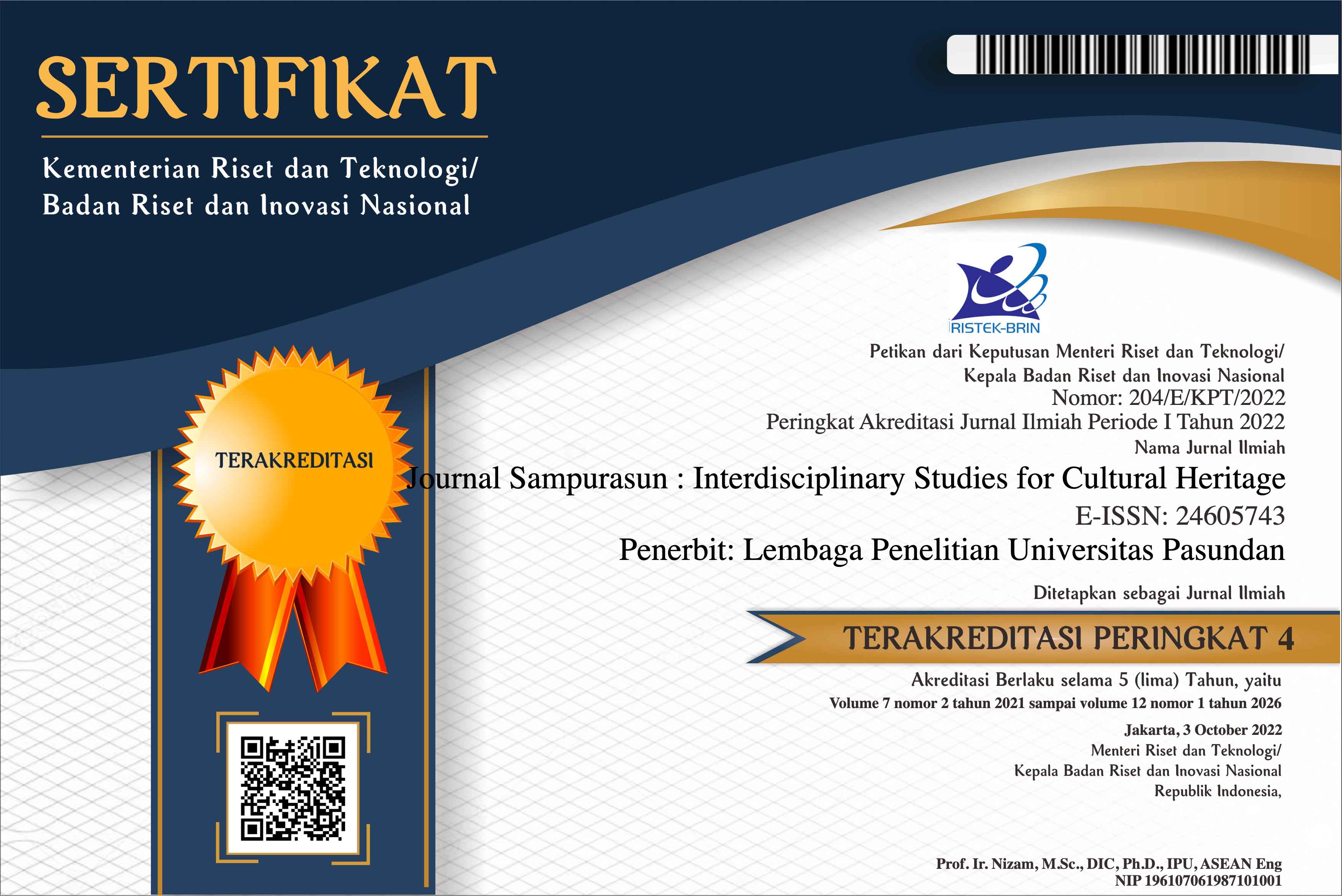CARE GIVING RESPONSIBILITES FOR CHILDREN LIVING WITH HIV/AIDS in CITY OF BANDUNG
Caregiving responsibilities; Parenting; Children living with HIV/AIDS
DOI:
https://doi.org/10.23969/sampurasun.v2i2.141Abstract
Objective: The HIV/AIDS epidemy on Children have devastating impacts on the survival and development of the children. Limited availability and access to government services, stigma and discrimination, as well as the absence and declining abilities of parents in meeting the needs of the children living with HIV/AIDS (CLWHA) raises the risk for those children to experience severe neglect. The purpose of this study is to examines the responsibilities of child care and to identify those who carry out the role of parenting for children with HIV/AIDS in Bandung.
Methods: This study applies descriptive method, with a qualitative approach. Indept Interviews conducted on social workers in four service providers institutions for people with HIV / AIDS in the city of Bandung.
Results: 29 out of 46 (56%) CLWHA that gets assistance from service providers have lost one or both parents. There are 17 couples of PLWHA parents and caregivers could not fully functions as providers for the needs of their children, due to their health conditions that gradually decreased, complexity of their drug regimens, stigma and fear that associated with death, and also have to care for their families. There is only 11 parents who continue to carry out their parenting responsibilities and roles. While 35 of CLWHA, sequentially, cared by grandparents, or aunts/uncles as relatives that most widely taken over the responsibilities and roles of caregiving. They do this with the main reason for the absence and the inability of parents because of health problems, behavioral, and economic capacity of the family. The existence of strong emotional bond amongs the extended family, and the intention to protect family honors also has prevents family from handing over the childcare to outsiders, which then prevents the child from being abandoned.
Conclusion: This study showed that limited availability and adequacy of governmental services, stigma and disriminasi, absenteeism and the poor capacity of the parents, does not directly cause severe neglect for CLWHA. Traditional cultural values related to extended family life have strengthened the role of the nuclear family and relatives to maintain their parenting responsibilities on children of their relatives.
Downloads
Downloads
Published
Issue
Section
License
Copyright Notice
Authors should not withdraw their submitted papers because the withdrawal wastes voluntary works devoted by an associate editor and reviewers. But, we accept the withdrawal of a submitted paper if authors have unavoidable reasons. In the event that a manuscript is to be withdrawn from submission to Sampurasun Journal, a letter must be sent to the editorial office requesting withdrawal by e-mail (sampurasunjournal@unpas.ac.id) with its scanned PDF file, before the notification of acceptance for publication.
The withdraw request letter must include the following information. Paper ID, Paper title, Authors names, Reason why the paper must be withdrawn, and Date and signatures of all the authors (or signature of the contact author).
If only the contact author signs the letter, he/she must obtain the agreement of the withdrawal from all the other authors and the letter must include the description that all the other authors agreed the withdrawal. The journal will not withdraw a manuscript from peer review until such a letter has been received. Authors must not assume their manuscript has been withdrawn until they have received appropriate notification from the editorial office. Withdrawal of a manuscript subsequent to acceptance for publication will only be granted in the most exceptional of circumstances.
After the paper is accepted for publication, the withdrawal is not permitted in principle. The authors must always pay the charge even if the withdrawal is permitted. Any request of withdrawal that does not follow the above procedure is treated as invalid. If illegal submission, e.g., plagiarized or duplicate submission, is found for a paper, the withdrawal of the paper will never be permitted and the authors will be punished based on the rule. It is not acceptable practice to withdraw a manuscript in the event of acceptance at another journal. This constitutes dual submission. The editorial office of the other journal will be notified of your actions. In such circumstances Sampurasun ISCH may chose to impose appropriate punitive action subject.
Withdrawal Penalty
Author is not allowed to withdraw submitted manuscripts, because the withdrawal is waste of valuable resources that editors and referees spent a great deal of time processing submitted manuscript, money and works invested by the publisher. If author still requests withdrawal of his/her manuscript when the manuscript is still in the peer-reviewing process, author will be punished with paying $200 per manuscript, as withdrawal penalty to the publisher. However, it is unethical to withdraw a submitted manuscript from one journal if accepted by another journal. The withdrawal of manuscript after the manuscript is accepted for publication, author will be punished by paying US$500 per manuscript. Withdrawal of manuscript is only allowed after withdrawal penalty has been fully paid to the Publisher. If author don't agree to pay the penalty, the author and his/her affiliation will be blacklisted for publication in this journal. Even, his/her previously published articles will be removed from our online system.


















